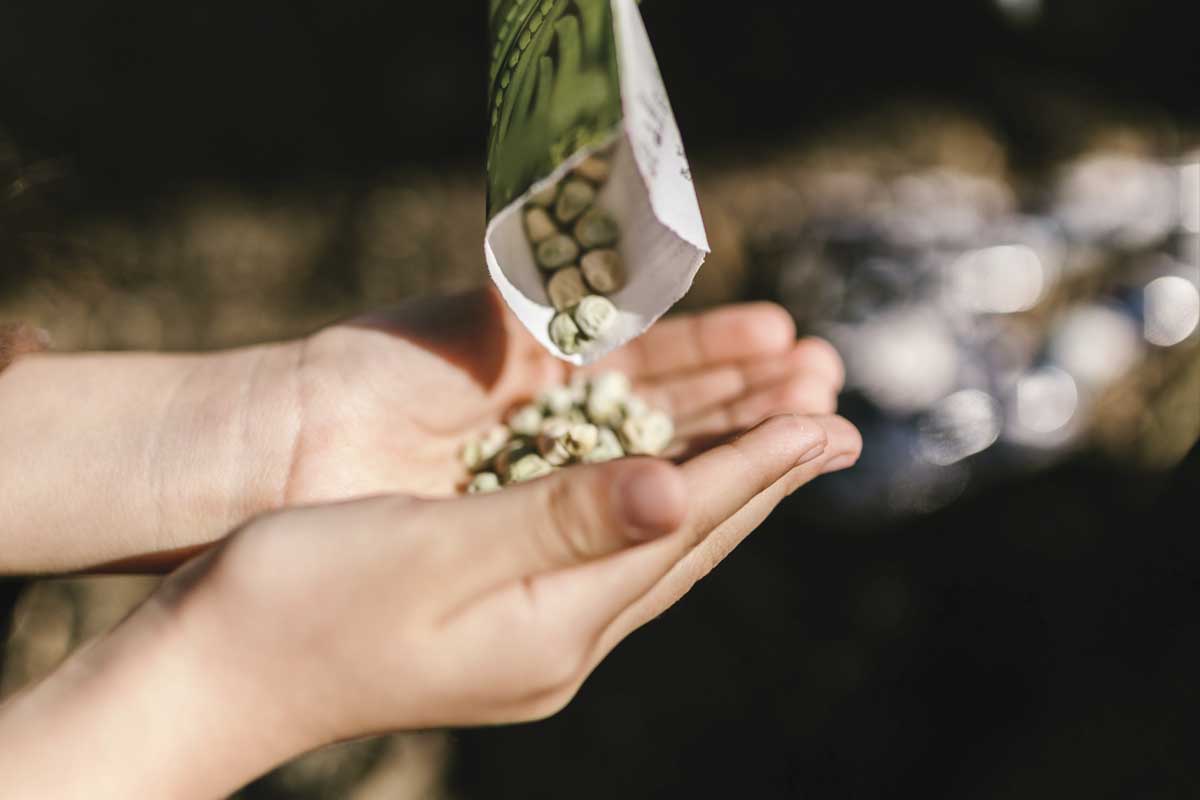Advertisement
Exercising Your Seed Sovereignty for a Better Food System
How to reclaim wise stewardship
Fact-Checked
This article has been written and fact-checked by experts in the field.

Source local, choose organic, grow a garden: we have no trouble rattling off a number of ways we can help build a healthier, more sustainable food system. But what about those little packages of genetic material, the carriers of pure potential that allow food to grow at all—the seeds? Seeds may be small, but they play a mighty role in determining what we grow, who can grow it, and how we feed ourselves amid uncertainty on a changing planet.
Advertisement
The mighty seed
Somehow containing all the information and start-up nutrients to create anything from a towering nut tree to a vining pea plant, these magical repositories of life have been stewarded by humans for millennia. Historically treasured and traded between growers, each seed variety represents a plant uniquely adapted to thrive in its region and capable of evolving as conditions change.
Advertisement
Seed diversity in peril
So, the more diversity and free exchange the better. Yet, according to Philip Howard, professor at Michigan State University and member of the International Panel of Experts on Sustainable Food Systems, “The industry is becoming more consolidated globally, with just four seed/chemical companies controlling over 60 percent of proprietary seed sales.”
This feeds into the large-scale industrial agriculture model of monocrops, synthetic inputs, and a loss of agency on the part of farmers—just as we’re waking up to the vital importance of diversity, soil health, and local knowledge in building a food system we can rely on.
Howard warns that seed ownership in the hands of so few not only is undemocratic but has led to “declining diversity, less innovation, higher seed prices, and reduced seed saving.”
Advertisement
Reclaiming seed stewardship
We’re not powerless to change this, though. Seeds are all around us—spilling out of tomatoes on our cutting boards, piled in grocery bulk bins, and dropping from wild onions—and it just takes a little intention, knowledge, and sharing to reclaim the wise stewardship of them.
Exercising seed sovereignty yourself, or supporting others in doing so, can be a profound act that shapes the future of how we feed ourselves. It’s hard to argue with the benefits of a free and open seed system.
Advertisement
Diversity
Commercially produced seeds offer but a fraction of the varieties and characteristics that are possible for our food crops. Sourcing from independent companies or saving our own from year to year introduces more diversity to the overall gene pool.
Advertisement
Adaptation
Saving seeds that do well in your climate produces plants that are adapted to thrive there without chemicals or coddling. On the broader scale, if growers are free to select seeds from plants that are responding to our changing climate, we develop resilience in the face of new conditions.
Advertisement
Empowerment
Seed sovereignty is commonly defined as “the farmer’s right to breed and exchange diverse open-source seeds which can be saved and which are not patented, genetically modified, owned, or controlled by emerging seed giants.”
Even as non-farmers, we can support their seed sovereignty on behalf of us all, plus we can empower ourselves to grow food free of patents and private ownership through the lost skill of seed saving.
Advertisement
Food quality
When we’re not concerned about selecting plants for uniformity or transportability, we’re free to choose them for flavour, nutritional value, and beauty.
Advertisement
Connection
Most heirloom food varieties have a story attached to them, sometimes even from our own ancestors, and it’s meaningful to be a part of that. Plus, locally saved seed connects us to community members through the sharing and trading of excess.
Ready to flex your seed sovereignty muscles?
- Purchase open-pollinated seeds from small seed companies.
- Save some of your own seeds from year to year.
- Collect seeds from thriving native plants in the wild.
- Seek out heirloom vegetables from your local store or grower, and ask for them if they’re not available.
- Participate in a Seedy Saturday or other seed exchange—or start your own!
- Support organizations dedicated to furthering our collective seed security (The Bauta Family Initiative on Canadian Seed Security).
How to start a local seed exchange
Whether it’s for a group of invitees in your backyard or open to the community at large, organizing a seed exchange is the perfect way to help maintain a viable and diverse gene pool. You’ll find stories, knowledge, and the energy of like-minded folks swapped right along with the seeds at these events. Here are some things to consider if you’re heading one up.
Timing: Have you timed it to occur prior to your local seed starting season (usually late winter)?
Format: Will it be strictly a swap, or can seeds be bought and sold?
Venue: Will it be stand-alone or part of a farmers’ market or other event?
Criteria: Although you’ll want participants to stick to open-pollinated seeds (hybrid seeds don’t produce reliable results from year to year), do you want to encourage only locally adapted varieties, or will you invite newcomers to contribute seeds they may have from other regions or countries?
Partners: Do you want to use the opportunity to connect with other organizations, local food growers, and small seed companies?
Upgrades: Do you want to include presentations, a meal, or any other complements to the exchange?
Venerable veggies
What do Midnight Lightning, Sundream, and Uncle David’s Dakota Dessert have in common? They’re all unique squash varieties that we have the opportunity to taste and propagate, thanks to networks of small seed savers.





